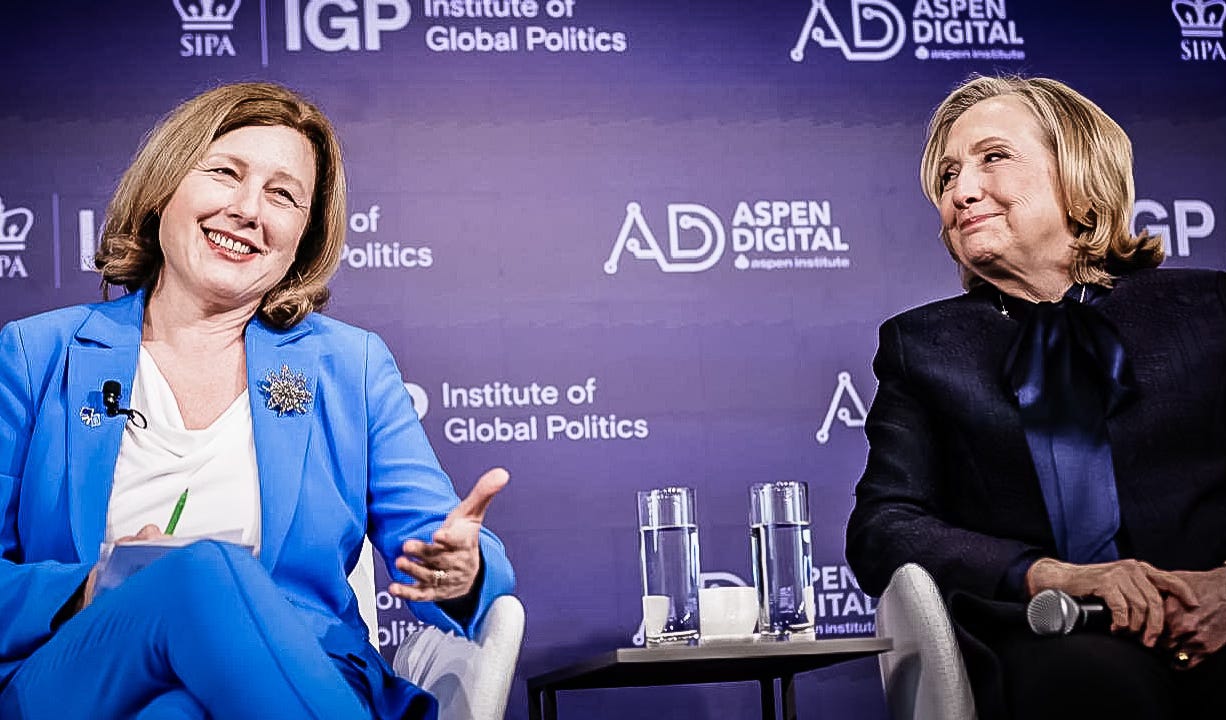European Officials Weaponize Intelligence Services To Censor Political Enemies
EU politicians ramp up claims of Russian election interference and demand censorship

Senior EU officials and the news media say Russia is spreading disinformation and paying off politicians in Europe to affect the upcoming June elections. “Russian influence scandal rocks EU,” read Politico’s headline yesterday.
"This confirms what we have suspected,” European Commission Vice President Věra Jourová said on Friday. The “Kremlin is using dodgy outlets pretending to be media [and] using money to buy covert influence.”
The news media have described it as a major scandal. “Pro-Kremlin website spread propaganda and ‘paid’ European politicians, top European officials said,” reads the Politico headline. The BBC headline is: “Russian network that 'paid European politicians' busted, authorities claim.”
Poland's intelligence agency said it had conducted searches in the Warsaw and Tychy regions and seized €48,500 (£41,500) and $36,000 (£28,500).
The Prime Minister of the Czech Republic said on X.com, “We uncovered a pro-Russian network that was developing an operation to spread Russian influence and undermine security across Europe. We therefore added two individuals and one legal entity to the sanctions list, and domestic authorities subsequently seized their assets.”
But neither the EU, Polish, Czech, or any other government officials have announced the arrests of any politicians for accepting bribes. As suspiciously, the main web site the intelligence services claim is the vector for spreading Russian disinformation, “Voice of Europe,” is fringe and not well known.
“We don't even know what Voice of Europe is,” a spokesperson for former Czech President Vaclav Klaus told Public. “We had to look up that the president gave them an interview. The president has never been paid for an interview in his life. We gave the interview because the Deputy Speaker of the Flemish Parliament had officially asked for it as part of his visit to Prague. Otherwise, we would not have provided it. The interview has 500 views on YouTube.”
According to the Czech intelligence agency, known as BIS, Petr Bystroň, a candidate for the European Parliament with Czech roots from the German AfD party, is one of the European politicians who received money from Voice of Europe. The BIS claims that Bystroň received the money during one of his visits to the Czech Republic in Prague.
Bystroň adamantly denies this. "I was in the Czech Republic for a conference, but the accusation by the Secret Service is nonsense,” Bystroň told iDNES.cz in an interview on March 29. “I only spoke to journalists from the website."
Another Czech politician, Cyril Svoboda, named in the scheme, said, “How could I have known it would be a security threat? At the time I gave the interview, they were not on any list. I wouldn't give an interview now, but they weren't on any list when I gave it to Voice of Europe.”
When asked if he was paid, Svoboda said, “No, nobody gave me anything.”
An Italian European People’s Party lawmaker who Voice of Europe interviewed said he never took or was offered money. “Of course not. What a question is this?” he told Politico. “It makes me laugh when you ask me if I got money from Russia … because I come from a very well-off family.”
What’s more, he noted, “If they are such a big threat, why [did] the European Parliament let these [Voice of Europe’ journalists inside? Why didn’t they check them?”
Neither the Prime Minister nor the Homeland Security Minister responded to a request for comment from the Public. The Voice of Europe website is also down.
“Voice of Europe’s YouTube page throws up a parade of EU lawmakers, many of them belonging to far-right, Euroskeptic parties, who line up to bash the Green Deal, predict the Union’s imminent collapse, or attack Ukraine,” notes Politico. “There is no suggestion that those appearing on the network accepted cash.”
Government officials could still announce charges. Indeed, the liberal-left Renew Party has called for a full EU investigation. “I am deeply concerned about the recent revelations of a Russian spy network causing massive damage to the EU,” said Valérie Hayer, the President of Renew Europe, “especially in the context of the upcoming European elections.”
But if intelligence services, EU officials, and the media had discovered evidence of criminal activity, they almost certainly would have produced it, along with charges against the accused. Instead, the most serious thing that governments have done is place a pro-Russian Ukrainian on a sanctions list.





